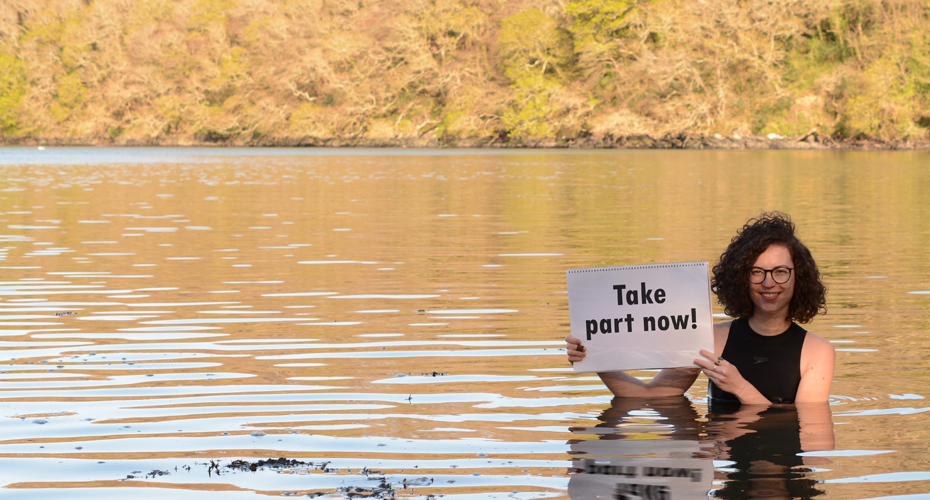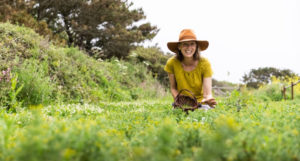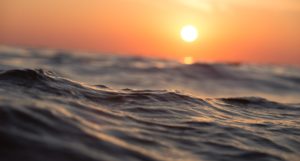Wild swimmers, surfers and paddlers wanted to help identify pollution risks in rivers and sea

People who spend time in natural waters are being invited to join two University of Exeter studies to help researchers understand and protect people from the health risks related to pollution.
The ‘Poo-Sticks’ project is looking for wild swimmers in rivers, while the BlueAdapt project focuses on people who go in the sea.
More and more of us are embracing the health and wellbeing benefits of wild swimming, surfing, and paddling in the sea and rivers. But both our coastal and fresh waters are at risk from sewage and run-off pollution from farms – a risk which is only exacerbated by climate change. Contact with contaminated natural waters can cause a range of issues including ear infections, skin rashes, respiratory illness, diarrhoea, and stomach cramps, as well as exposing people to bacteria which are becoming increasingly resistant to antibiotics.
Funded by the Natural Environment research Council (NERC), the ‘Poo-Sticks’ project is recruiting participants who regularly swim in UK rivers (and other freshwater, such as lakes) to discover how wild swimmers might acquire antibiotic-resistant bacteria, also known as ‘superbugs’.
Antimicrobial resistance is a major global health challenge which is threatening our ability to treat common infections and perform both routine and life-saving procedures safely. Understanding how these bacteria enter our bodies is crucial for controlling their spread, and polluted freshwater environments could be a key source of the microbes, genes, and contaminants that promote bacterial resistance.
‘Poo-Sticks’ participants will be asked to provide a faecal sample using a pre-paid postal kit and share information about their recent swimming activities, dietary habits, and overall lifestyle and health. Swimmers are also encouraged to invite non-swimmers of similar age and gender to take part. By comparing their responses, the team hopes to identify whether differences in people’s gut bacteria might be due to exposure to natural waters affected by pollution.
PhD student Elitsa Penkova is leading the project and said: “A lot of people carry antibiotic-resistant bacteria in their guts, yet they’re completely unaware of it. But if bacteria causing an infection are resistant to antibiotics, then the treatment won’t work, which may lead to more severe illness. This is a major issue, and we hope our findings will help inform strategies for reducing the spread of antimicrobial resistant bacteria.”
Meanwhile, the Universities of Exeter and Galway are working together on the BlueAdapt project, funded by Horizon Europe and UK Research and Innovation. Researchers are asking anyone who has been to the beach and used coastal waters and also uses the Surfers Against Sewage free smartphone app, Safer Seas and Rivers Service, to take part in an online survey. The Safer Seas and Rivers Service supplies the latest pollution forecasts and alerts so people can make an informed decision on when and where it’s safe to get in the water.
The survey is now open and runs until the end of October. The aim is to find out whether having access to reliable, real-time information about water quality has an impact on how swimmers behave and reduces preventable illnesses.
Professor Will Gaze from the University of Exeter’s European Centre for Environment and Human Health said: “Our aim is to provide evidence that can inform decision making to reduce risk to water users and inform change to safeguard our natural environment. This research is timely as we are seeing a steep increase in antibiotic resistant infections and is of particular concern given the increased attention the quality of our river and coastal water is currently receiving.”
River swimmers who are interested in taking part in the ‘Poo-Sticks’ study can find out more information here – https://bit.ly/poo-sticks
Coastal swimmers, surfers, and paddlers who are interested in taking part in the BlueAdapt survey can find out more information here: https://blueadapt.eu/sea-user-health-survey/



